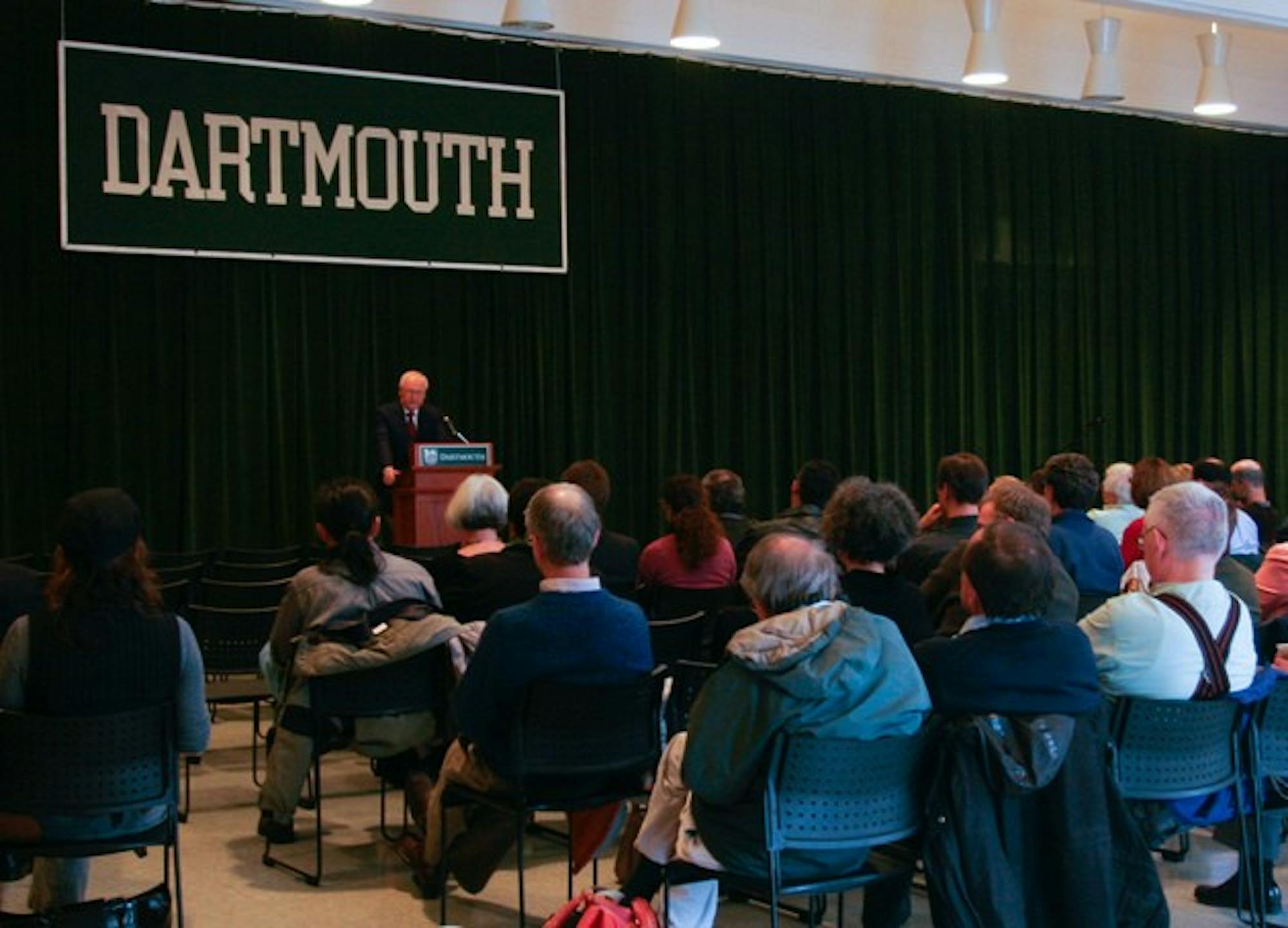Wright said the endowment's returns for the last fiscal year were "marginally positive," but he added that the College has been down several points this quarter.
"The immediate impact here is that under our endowment distribution formula, we have less revenue than we projected this year and are likely to have still less next year -- and this despite the fact that we do have a comparatively aggressive endowment spending formula," Wright said.
Dartmouth's endowment investment return was 0.5 percent for the fiscal year ending June 2008. The average endowment returned -3.04 percent, according to Wilshire Trust Universe Comparison Service, which looks at endowments and foundations worth more than $1 billion.
The College will initiate measures to reduce expenses after the November meeting of the Board of Trustees, according to Wright.
"As we begin this process, I would like to make clear my view that Dartmouth does not have patterns of discretionary spending that can easily or harmlessly be ratcheted back to meet new budget goals," he said. "We will take the steps that are necessary, but it might be useful first to take a step back in order to assess those things that define and enable the College."
Wright said his priority is to protect Dartmouth's financial aid program and competitive faculty compensation. Payroll projections will have to be reduced, he added, but the reduction needs will be met through attrition.
"Any steps backward from our commitment to recruit, retain and enable the very best students and faculty would present a far harder to correct problem than a market downturn," he said.
No changes will be made to the College's financial aid plan, according to Wright.
"I couldn't imagine backing off financial aid," Wright said in an interview with The Dartmouth. "You might argue that a year ago we didn't have the program, but what makes our own economic picture more complicated also impacts those receiving financial aid. They, by definition, are suffering significantly; [financial aid] is a crucial part of what makes Dartmouth."
Wright also stressed the importance of what he called Dartmouth's "true endowment," which he defined as the "overall strength of the College and its capacity to meet the changing needs of a changing world." Wright added that this includes recruiting and retaining faculty, encouraging diversity among faculty and providing students with opportunities to study in different academic fields.
"Great and enduring institutions -- as we are -- survive these downturns better than most -- as we shall," Wright said.
The numerical endowment serves as a "lubricant" for the "true endowment," which is more than money in a bank account, Wright said.
"We cannot sustain operations without the financial support [the endowment] provides," he said. "But we should never confuse it with our purpose or imagine that it defines our value."
Anthropology professor Deborah Nichols said she believes Wright "showed what his commitments are" during the address and laid out the strengths of the College.
"Obviously, I think it's great to have a commitment to financial aid, need-blind admissions and a strong commitment to faculty," Nichols said. "We all know that budget cuts are coming."
Wright added that he hasn't heard many faculty members comment on the current economic conditions and their effects on the College because "we are all getting used to it" and "no one is surprised." Wright emphasized that the financial consequences are not unique to Dartmouth and that faculty members have witnessed them in their retirement savings.
Biology professor Roger Sloboda said he appreciated Wright's focus on people instead of the overall financial effects that the economy will have on the College.
"I'm glad that he is an academic and not a businessperson because he looks to students and faculty first, where a businessperson might look at the bottom line," Sloboda said.
During his speech, Wright briefly acknowledged that the College is in a period of transition, due to his anticipated resignation in June. He advised faculty members "not to dwell too much on the uncertainty and to enjoy the excitement of it."
"The good work of the academic enterprise here continues and thrives despite comings and goings at Parkhurst Hall and so it shall in this period," he said.




